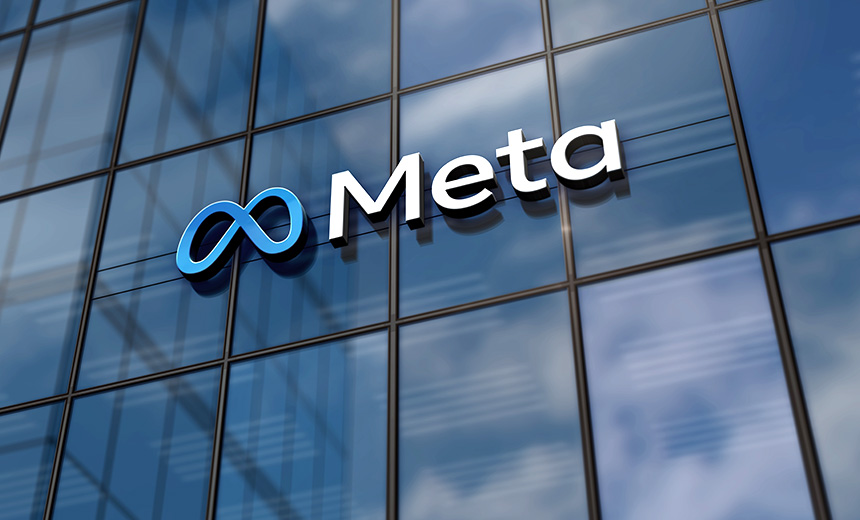Fraud Management & Cybercrime
,
Geo Focus: Asia
,
Geo-Specific
Competition Regulator Says WhatsApp Users Could Not Opt Out of Data Sharing

India’s Competition Commission has fined social media conglomerate Meta over $25 million for forcing WhatsApp users to agree to a sweeping data sharing policy with other Meta platforms. The agency ordered the company to stop using users’ data for online advertising on other Meta platforms.
See Also: Unmasking Risk for Due Diligence, KYC and Fraud
The commission took exception to Meta’s January 2021 update to WhatsApp’s terms of service agreement in which the company told users that their data will be shared with other Meta platforms to improve their advertising and product experience. The watchdog
said
WhatsApp users did not have the option to opt out of this requirement.
The Jan. 4, 2021, WhatApp terms of service update said the encrypted chat platform shares information with Meta companies to “enable you to connect your WhatsApp experience with other Meta company products; to ensure security, safety and integrity across the Meta company products; and to improve your ads and products experience.”
The commission’s decision follows a European Commission fine against Meta for €797.72 million, or $841 million, on Nov. 14 for integrating its online classified ads service, Facebook Marketplace, with personal social network Facebook without obtaining prior permission from users on whether they wanted to use Facebook Marketplace.
The commission also ruled that Meta unfairly abused its dominant position in the social networking market to give Facebook Marketplace a substantial distribution advantage over competitors, while also imposing unfair trading conditions on other online classified ads service providers who advertise on Meta’s platforms. “This is illegal under EU antitrust rules. Meta must now stop this behavior,” said the commission’s executive vice president Margrethe Vestager.
The Irish Data Protection Commission also fined WhatsApp €225 million in 2021 following a three-year investigation that found that the platform used a “forced consent” strategy to obtain user consent for data processing without giving users simple and transparent ways to decide if they wanted to share their personal data.
In its ruling, the Competition Commission of India also found Meta abused its dominant position in the market for messaging apps and online display advertising to virtually force existing WhatsApp users to consent to its new data sharing rules.
“The commission has concluded that the 2021 policy update by WhatsApp on a ‘take-it-or-leave-it’ basis constitutes an imposition of unfair condition under [The Competition Act, 2002], as it compels all users to accept expanded data collection terms and sharing of data within Meta Group without any opt out,” the regulator said.
CCI said in its order that WhatsApp cannot share user data with other Meta platforms for advertising purposes for a period of at least five years. To collect data for other purposes, the platform must provide a detailed explanation to users about the purpose of such data sharing, the amount of data shared with other Meta platforms and link each type of data to its corresponding purpose.
The commission also made it clear that WhatsApp cannot make data sharing with other Meta platforms for purposes other than providing WhatsApp services as a mandatory condition for users to continue to use the service. Users must have the option of managing their data through in-app features and modifying their choices at any time.
In its response to the CCI’s ruling, Meta said the January 2021 update to WhatsApp’s terms of service was completely optional for users and that it plans to appeal the ruling.
“As a reminder, the 2021 update did not change the privacy of people’s personal messages and was offered as a choice for users at the time,” Meta said. “We also ensured no one would have their accounts deleted or lose functionality of the WhatsApp service because of this update.
“The update was about introducing optional business features on WhatsApp and provided further transparency about how we collect and use data,” the social networking firm said. “And since that time, WhatsApp has been incredibly valuable to people and businesses, enabling organizations and government institutions to deliver citizen services through COVID and beyond, and as well as supporting small businesses, all of which furthers the Indian economy. WhatsApp is able to do all of this because it offers services supported by Meta.”
The Internet Freedom Foundation, a leading digital privacy advocacy group that provided expert information during the investigation, said the ruling set a “landmark precedent” for the protection of data privacy and fair competition. “This is a critical step in ensuring that tech giants cannot exploit their market power at the expense of users’ fundamental rights,” the group said.
“This victory is the result of years of sustained advocacy, beginning in 2021. It underscores the essential role of persistence in defending users’ fundamental rights and the collective responsibility required to challenge the unchecked power of Big Tech.”
